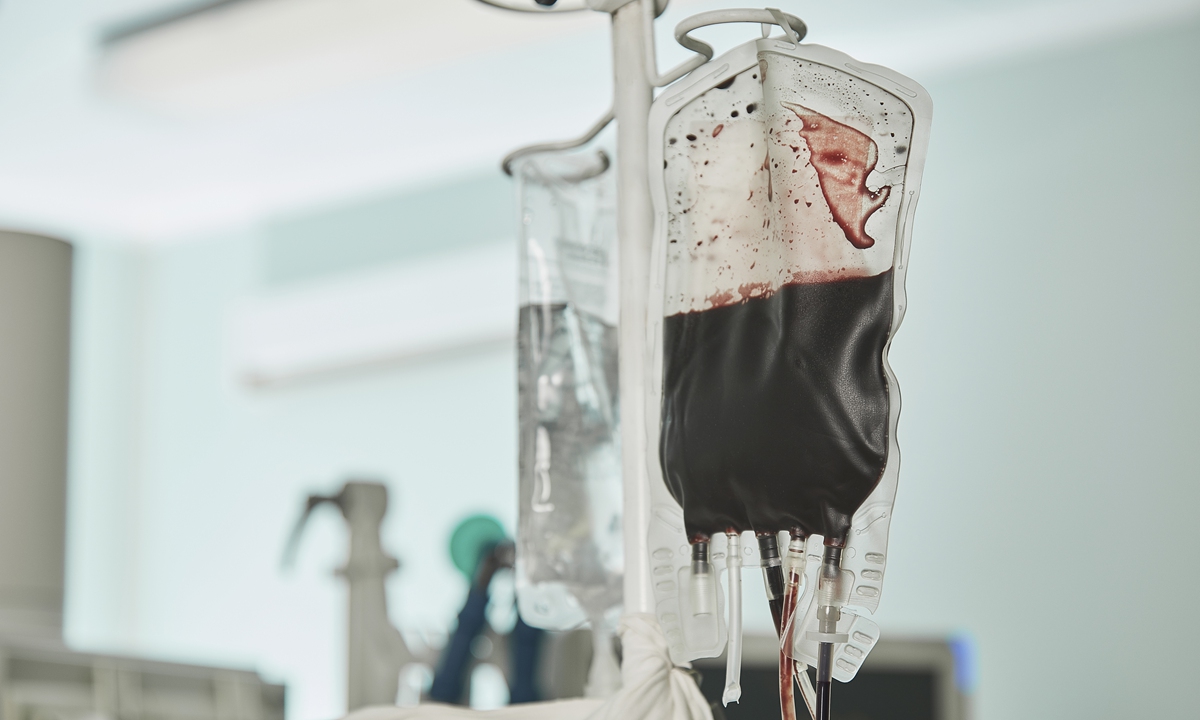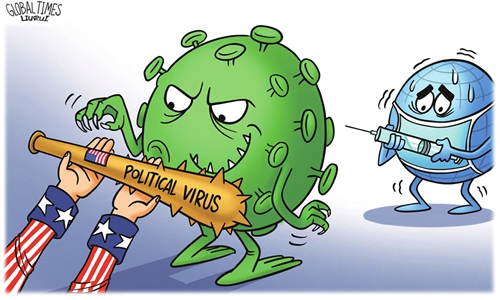CNN's Wuhan blood sample story 'over-interprets' old information
Testing for antibodies should be conducted in locations worldwide for COVID-19 origins tracing: experts

Photo: VCG
Several sources said on Wednesday that an "exclusive" report by CNN claiming that China is preparing to test "tens of thousands" of blood bank samples from Wuhan is hyping of old news and an over-interpretation, as a collaborative study with the Wuhan Blood Center for the presence of COVID-19 antibodies was recommended by a WHO-China joint experts team in a March report.
Sources told the Global Times that preparations for the testing of blood samples has not started yet, and they said that the report exposed the US media's vicious conjecture and bias by suggesting that testing conducted by China cannot be transparent.
CNN said in a story on Wednesday that China is preparing to test tens of thousands of blood samples from Wuhan, as part of "a probe" into the origins of COVID-19, citing an unidentified Chinese official. Those samples kept in the Wuhan Blood Center, which are thought to span 2019, have been retained for two years, and preparations for testing are in progress, as the two-year validity period will soon expire, the report said.
A source close to China's National Health Commission told the Global Times on Wednesday that preparations for the testing of blood samples has not started yet, and the CNN report is an overinterpretation.
The source said it is also a vicious conjecture to connect the move with increasing calls for transparency over the emergence of the virus.
The WHO-China joint expert team already recommended a collaborative study with the Wuhan Blood Center for the presence of SARS-CoV-2-specific antibodies in blood samples from adult blood donors in Wuhan collected during the months of September to December 2019, and further back in time, until there are two successive months without any evidence of SARS-CoV-2-specific antibodies among the tested samples, according to a joint report issued in March.
This could be expanded to include other blood centers in China and other locations worldwide, focusing on the six months (or at least three to four months) before the first cases in each location were identified and ideally using a common laboratory testing approach, the report said.

Liang Wannian, a member of the WHO-China joint study team, speaks at the WHO-China joint study press conference in Wuhan, central China's Hubei Province, Feb. 9, 2021. Photo:Xinhua
When asked about whether China would further test the blood samples, Liang Wannian, the Chinese leader of the WHO-China joint expert team, said at a press conference in July that experts had already made a request for sample testing and invited some experts from the Wuhan Blood Center for full discussions.
Blood samples are kept as evidence in lawsuits related to blood donations, and they have to be retained for two years in accordance with Chinese regulations, Liang explained. As to the next-phase study, whether those samples could be used for relevant studies, "the Chinese authorities are currently organizing experts and institutions to get prepared," he said.
Another expert from the WHO-China joint expert team, who spoke on condition of anonymity, told the Global Times on Wednesday that he had not been aware of any plan to soon launch blood testing, as reported by the US media.
Also, an employee from the Wuhan Blood Center told the Global Times on Wednesday that the center had no clue about the information reported by CNN.
Marion Koopmans, head of the viroscience department at the Erasmus MC Rotterdam in the Netherlands and a member of the WHO-China joint study on the virus origins, told the Global Times in an earlier interview that WHO scientists talked to Hubei's blood banks during their stay and experts agreed to keep the samples, but "we also recommended similar studies in other regions inside and outside of China with early evidence for cases using the same methods, and that has not been arranged and may become impossible."
While the CNN story hyped the kick-off of blood sample testing in Wuhan by citing as background that the Biden administration has blamed China for not being open and transparent on the matter of origins tracing, experts said that testing early samples is common practice for scientific studies.
Liu Jun, a researcher from the China CDC who is also a member of the WHO-China joint expert team, told the Global Times on Wednesday that testing blood samples taken in Wuhan in 2019 as a possible method for tracing the virus origins was discussed during their visit to Wuhan with international experts earlier this year, and the suggestion was written into the WHO-China joint report. Such tests are a normal way to conduct further studies, said Liu.
For the next phase of origins tracing work, some Chinese experts called previously for a plan to investigate early samples, especially in countries that reported early cases like the US.
For instance, a study of more than 24,000 samples taken for a National Institutes of Health (NIH) research program in the US between January 2 and March 18, 2020 suggested that seven people in five states - Illinois, Massachusetts, Mississippi, Pennsylvania and Wisconsin - may have been infected well before the country's first confirmed cases were reported in January 21 in 2020.



